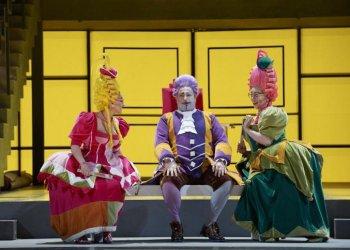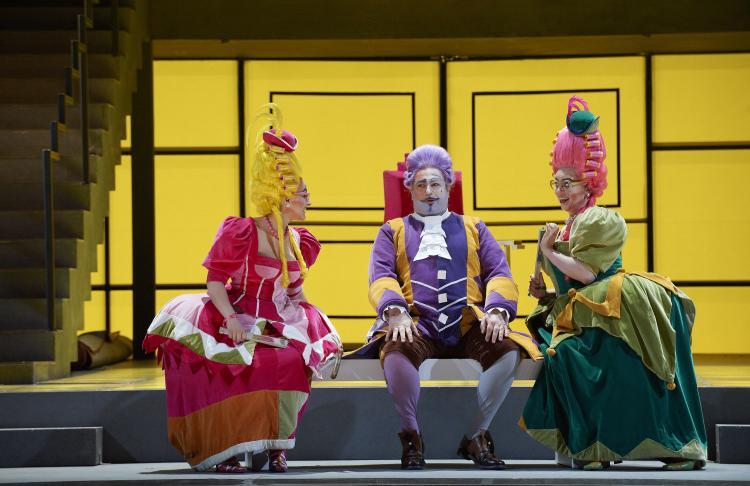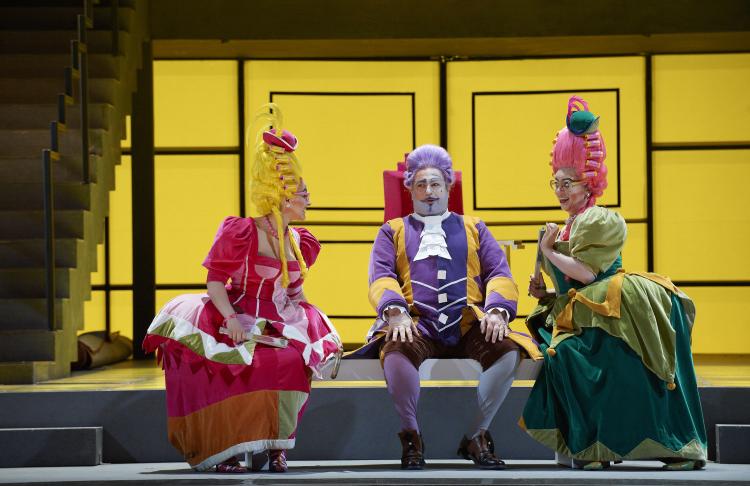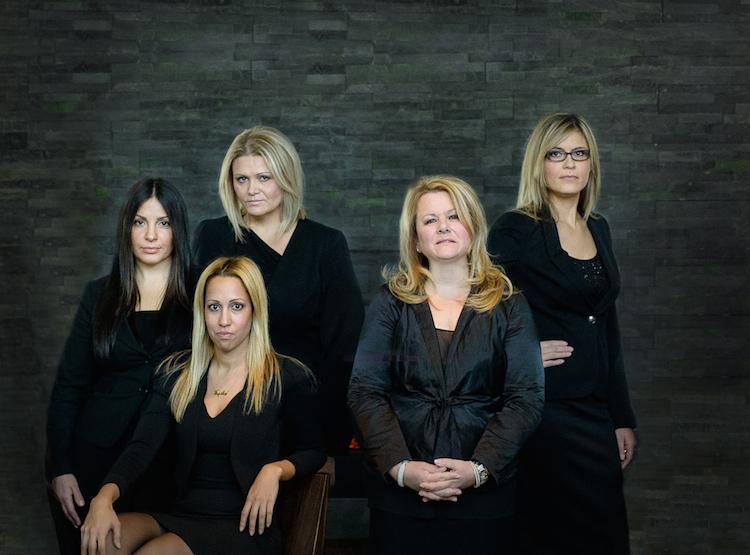‘Cinderella’ a Burnt but Palatable Offering
What a privilege it is to go to the opera. There is no feeling like it.

(L-R) Rihab Chaieb as Tisbe, Donato DiStefano as Don Magnifico and Ileana Montalbetti as Clorinda in the Canadian Opera Company production of 'La Cenerentola' (Cinderella), 2011. Michael Cooper
|Updated:






